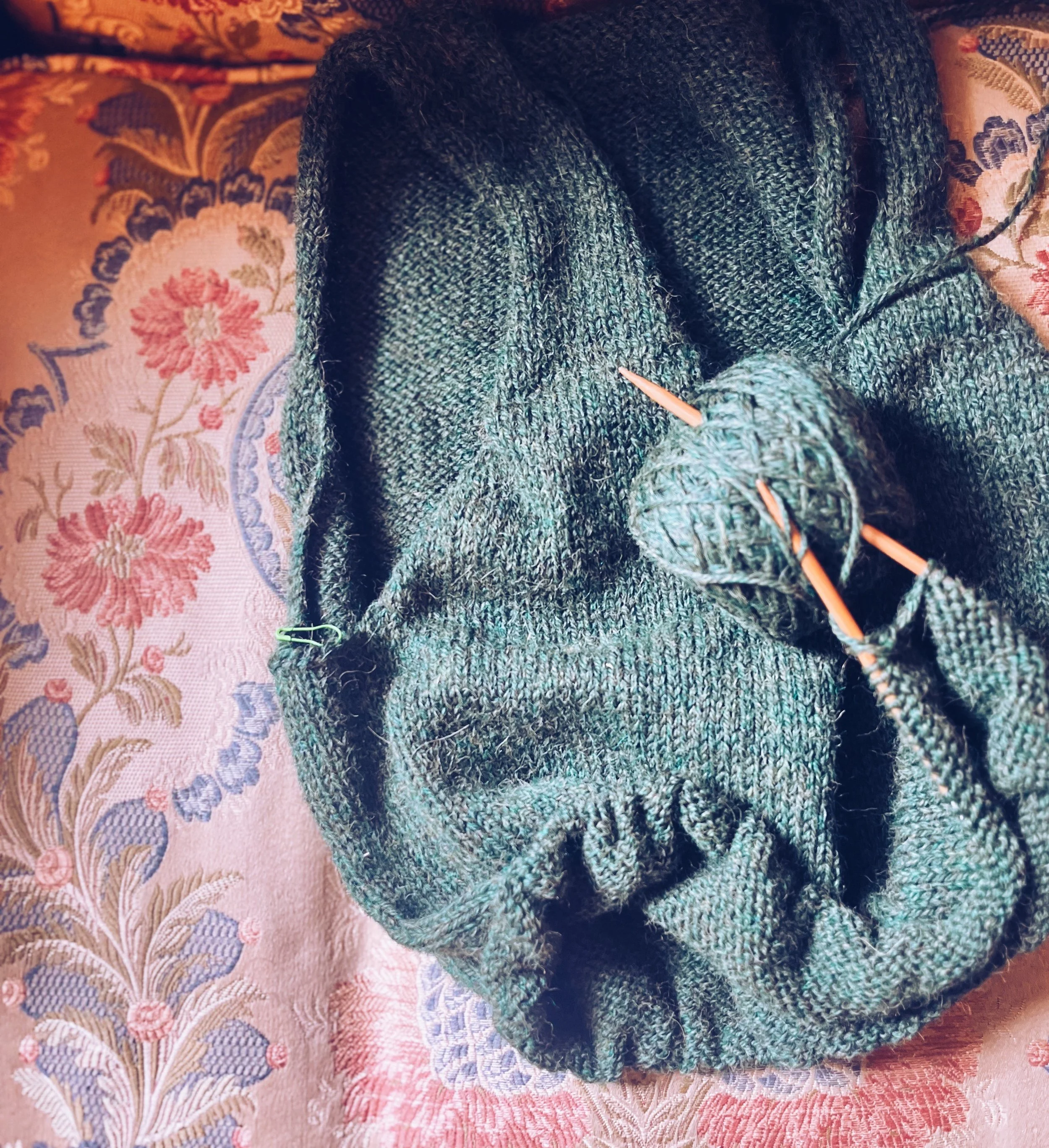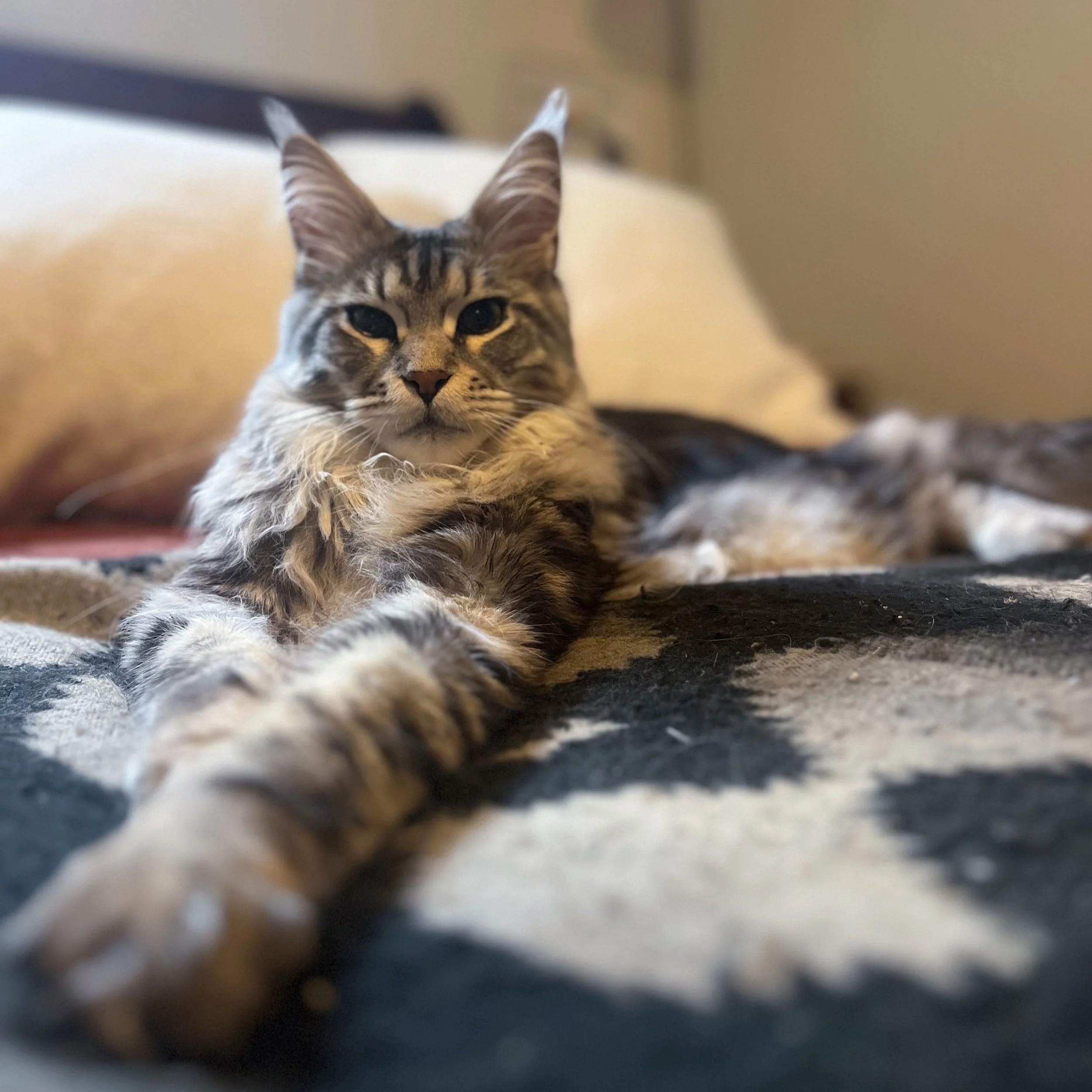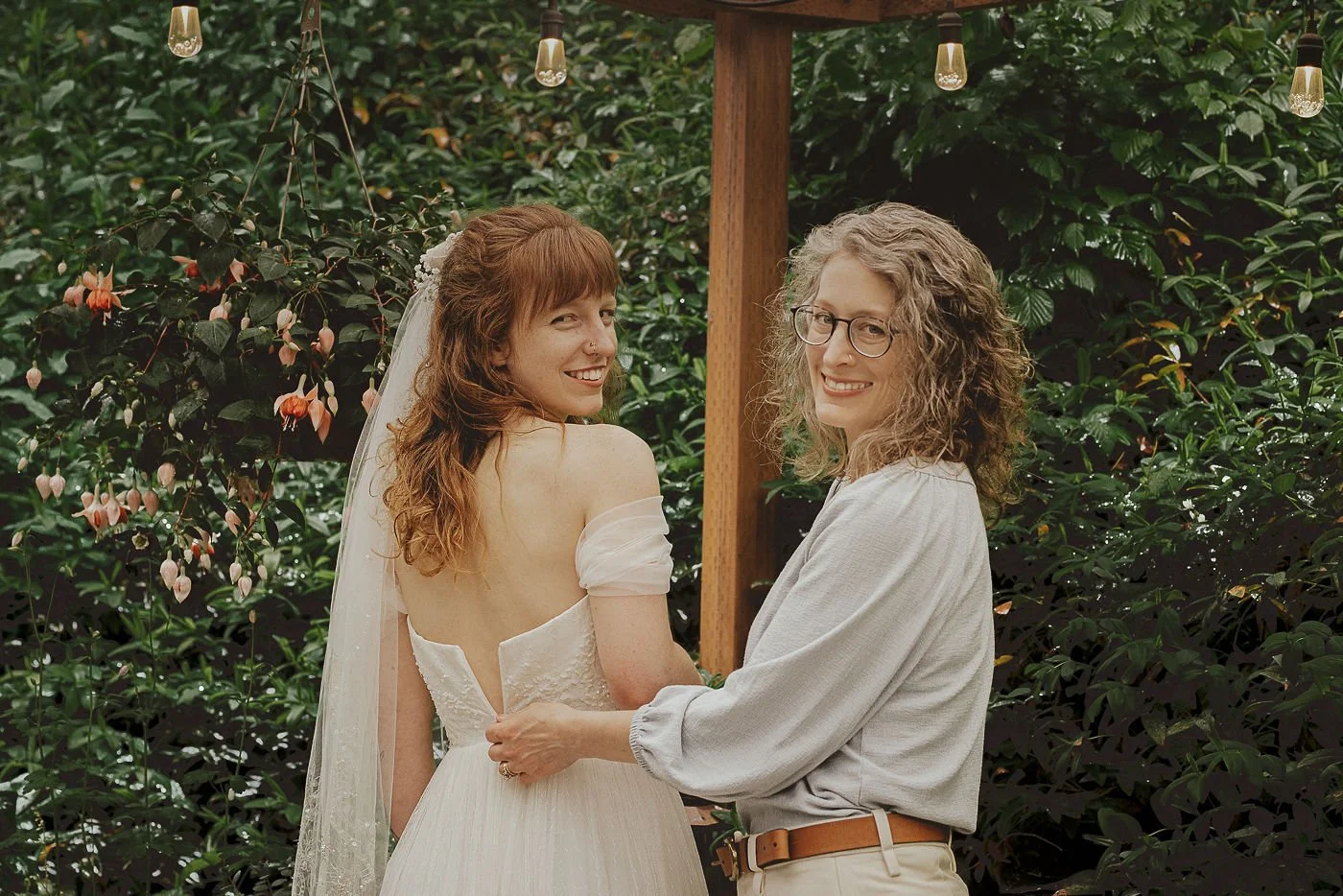Nothing Is Lost :: July 2025
/My father is gone now, swept swiftly away from us at the end of April by a riptide of cancer. I am still reorienting myself, like some digital map spinning up, then down, looking for center. It is the end of possibilities that hurts the most, the end of what should have been, and wasn’t. I wasn’t sure what to expect from this new kind of grief. I’ve never been prone to high emotion; malaise is more my usual path, followed by self-recrimination and doubt, as if the cancer – or the relationship – was my doing alone. We are two months on. How strange it is that someone so essential to my own being can just…stop.
Meanwhile, the world.
I’ve barely let myself acknowledge the news, but it trickles in. I don’t let myself go too far down any path of despair or fear because I know it accomplishes nothing. We are in the inevitable collapse of an unsustainable system and we will have to live our part.
“Forgive me these shadows I cling to, good people, trying to hold quiet in my prologue. Hawks cling the barrens wherever I live. The world says, “Dog eat dog.” ~ “Some Shadows”/William Stafford
Once a week now, I go to a Mindful Gardening class at the university’s learning garden. The class is a motley group of ages and orientations but our instructor is one of those beautiful women who looks like she emerged from nature itself, all soft fabrics and earth colors, a gentle voice. She brings her newborn tied in a sling around her chest and invites us to listen to the earth, and we all do, without embarrassment. We are hungry for mothering, I think. All of us with our different stories, all of us needing reassurance, all of us suffering from the same fractured anxieties.
We pull weeds under the blistering sun, turn the compost pile, encourage the native plants to grow. Sometimes we talk to each other, but mostly, we are quiet and busy. Our jittery bodies shape themselves around the plants as if we were one of them – and we are – thick-stalked and branching, reaching toward both sun and soil for connection.
When I signed up for this class weeks ago, I chose it because my brain was grief-dull. I needed something that let my focus and concentration off the hook; I didn’t realize it would be healing. I put my hands in the soil and I think of my dad’s body going back to the earth, of the beautiful circle of our existence turning and returning, of the physical reality of our bodies becoming dust and being taken up again into the bodies of other creatures in a long and continual renewing. Nothing is lost. We are literally made of this renewal – the bodies of all our ancestors live inside us. We are all, day by day, heading back to our beginning. When my dad died everyone talked about his going home to an eternal somewhere in the sky. I prefer to think of him here all around me, present now and always in leaf and bud and bone. And I find this makes the rest of the world bearable too. Whatever dies - nations or species or eras - is composted into the next turning, the next flowering, however strange or far away that may be.
Grief can be like standing on a distant mountain. It takes you out of the day to day world and expands your horizon. Suddenly you see how short the time really is, how close to your own death you already are. But just recently, I’ve felt myself returning to the place where we all live again, close up to the frustrations and fears of this moment. I suspect that it is nature, quiet, and connection that will make living in this now possible, just as they have made accepting this loss possible. But the truth of now is that nature, quiet, and connection are under immediate threat. I know it is going to take radical determination to regain — and retain — those things in our lives. Maybe I will write more about that later, if you would like.
~Thank you so much for your kind notes over the past months. I know some of you have been facing similar things and my heart is with you. I hope you are finding your own places of peace and connection.
After the initial fog of loss – and many hours of mindless TV watching – I’m making July as screen-free as possible. I use the Brick app to make my phone (almost) a dumb phone and I’m not watching TV or movies.
Instead, I’m spending as much time as I can outdoors. I’ve started observing and jotting down nature notes again, something I haven’t done since I started school five years ago. I’m remembering patterns I once took time to notice and had forgotten I knew - cycles of plants and wildlife that return to my awareness like old friends. Right now, the young crows are begging loudly for food in the mornings and the thimbleberries are ripe. Soon it will be time for blackberry picking and dahlias. I plan on observing every inch of this summer and beyond.
~ I’ve taken up knitting again (with the help of my lovely DIL) and I’m working on a vest for the fall. It is so exciting to see a garment take shape under my needles.
~ And I’m reading, of course. A few standouts:
Sara Baume: I loved Seven Steeples, but I’ve added A Line Made by Walking to my favorites now too. The story of an artist working her way through grief and depression, it is finely observed and wonderfully quiet. Baume’s character struggles with her identity as an artist, wondering if she has been lying to herself about her talent, but all the time we as readers can see that she moves and thinks and observes as an artist. It’s a meditation on the ways we are unkind to ourselves and hold unrealistic expectations and, in its own way, permission to be small and unambitious. A nice companion to this is Baume’s Handiwork, which is her own meditations on her life as an artist.
Karen Russell: The Antidote. I love Russell’s inventiveness and embrace of the off-beat. This new novel is set in the Dust Bowl and looks at the ways we willfully and collectively forget our sins.
Belinda Bauer: The Impossible Thing (audiobook). Terrific narration. This is based on the real story of the Metland eggs and the history of egg collecting, which is a lot more exciting than it sounds.
Jorge Luis Borges: Labyrinths. This is the first time I’ve read Borges and I understand why people say he’s so singular. (I can see his influence though, in books like Eco’s The Name of the Rose, or Thomas Pynchon’s The Crying of Lot 49, maybe even in Ted Chiang’s work, if you like any of those writers.) But this collection feels so timely. It deals a lot with the recursive nature of the world. Things repeat, time overlaps, things exist now because they existed before. Lately I’ve been stuck on the story, “Tlön, Uqbar, Orbus Tertius”. It’s about a fictional world called Tlön which is created by a “secret and benevolent society” of academics. They invent an entire language, mythology, numeracy, philosophy and science for Tlön over a great many years. The society’s core belief is that nothing is real unless it is perceived, or in other words, ideas create reality – and they prove this by slowly hiding their false “history” inside actual cultural records. Over time, Tlön, whose “existence” is now sprinkled into encyclopedias and textbooks and historical records, becomes real to future people who don’t know it was an intentional fiction to begin with. (It's almost like this has happened before. Maybe we should all be reading literature all the time before it’s too late?)
Sharon Olds: Arias. I read one of these a day and I’m pretty much always astounded by her fearlessness. From “Her Birthday as Ashes in Seawater”
“Oh, Mom. Come sit
with me at this stone table at the bottom
of the Bay, here is a barnacle of
egg custard, here is your tiny
spoon with your initials, sup with me
at dawn on your first day—we are all
the dead, I am not apart from you,
for long, except for breath, except for
everything.”
As always, I love to hear from you. Share what you’re reading or how you’re surviving our crazy world.
For now,
Tonia
P.S. I got new kittens and they have been such a bright spot.
Wendell
Wallace




















